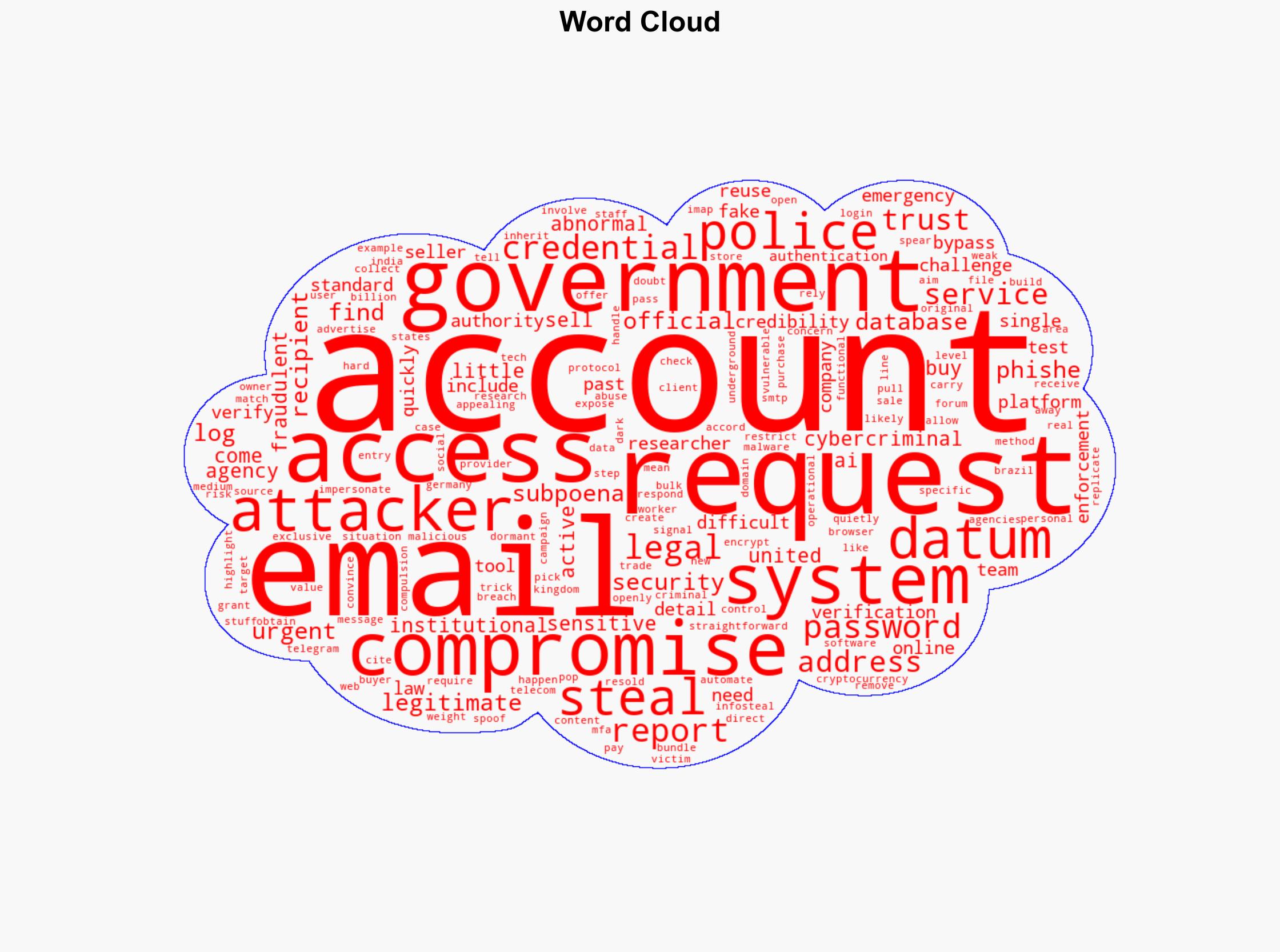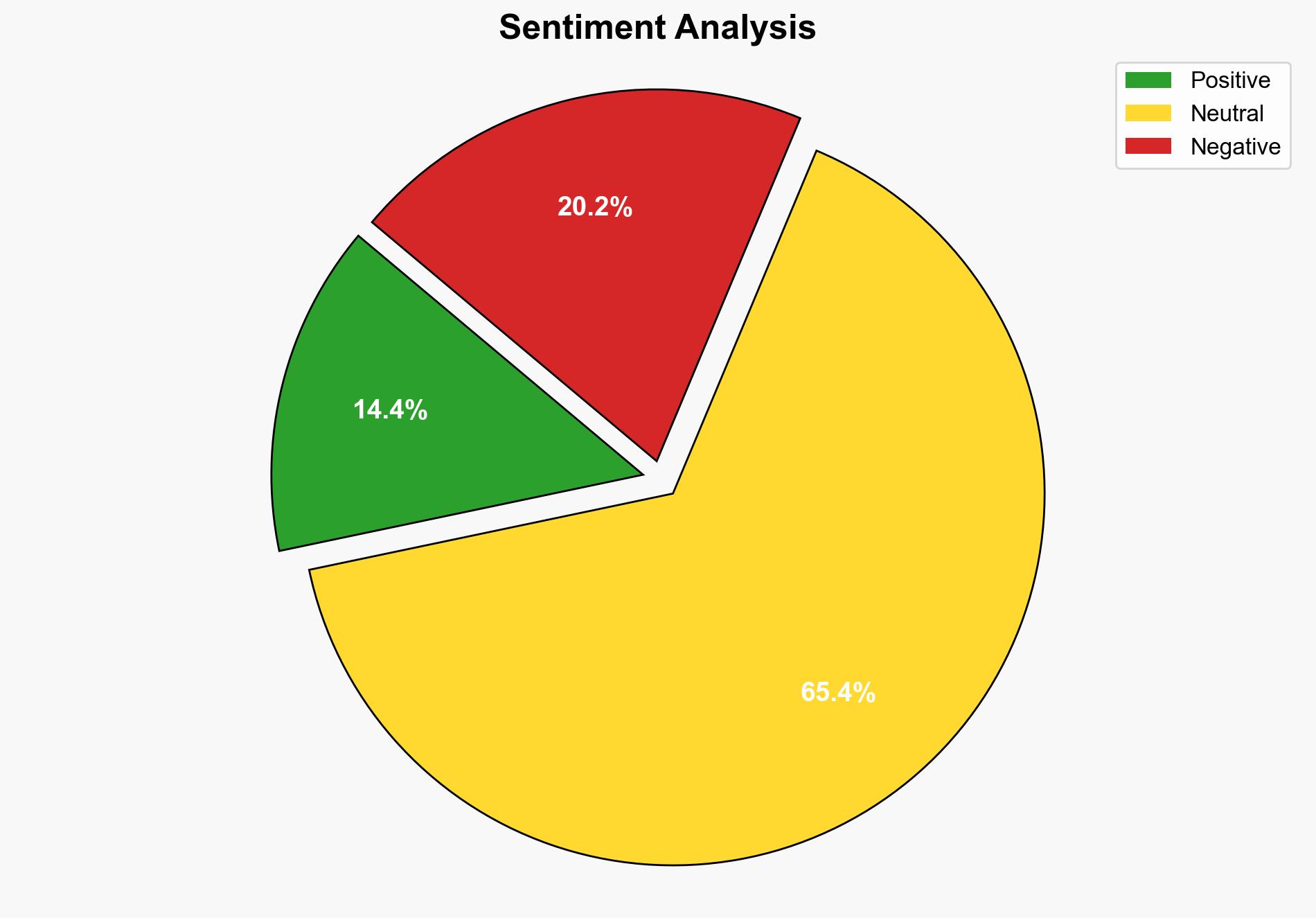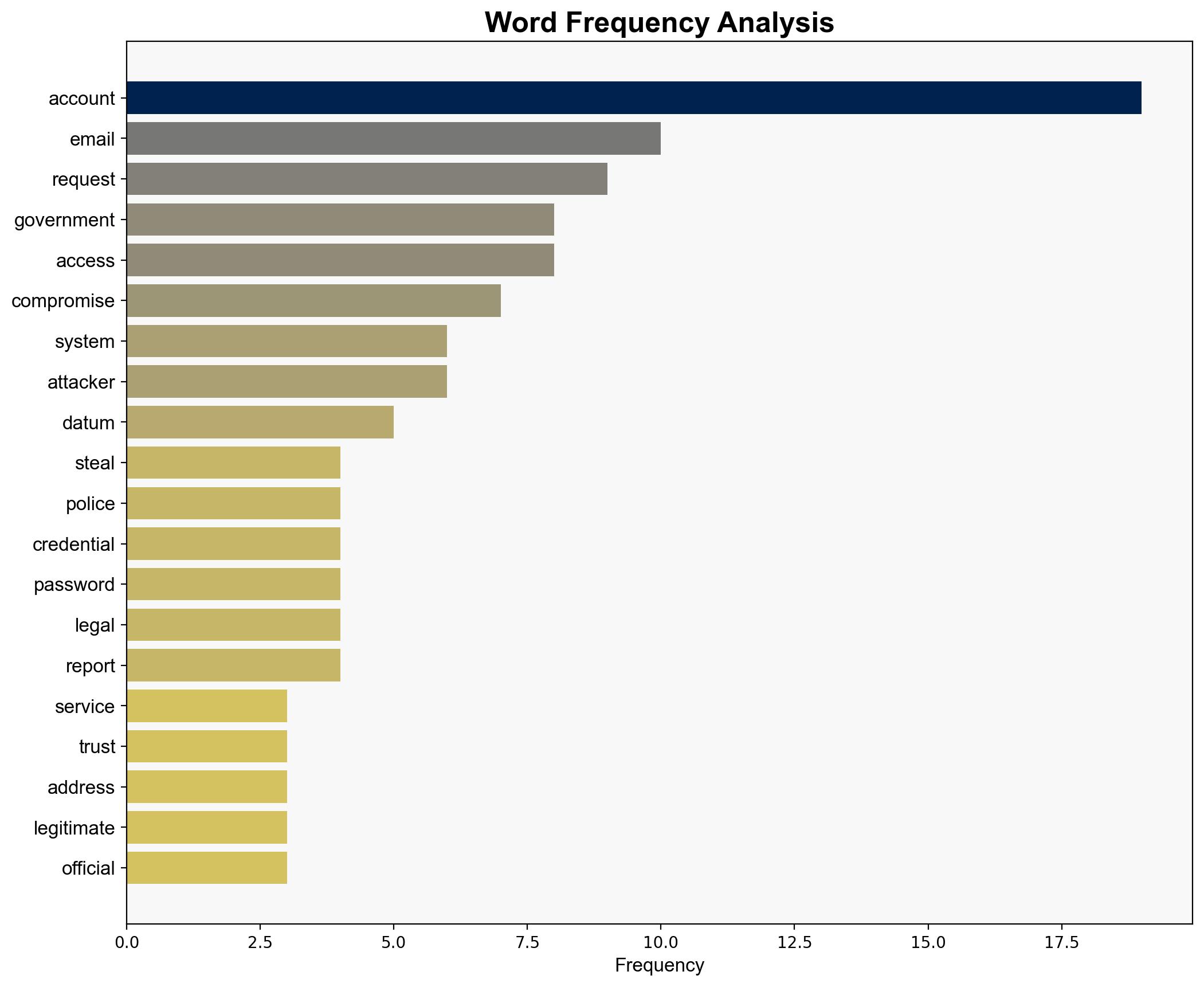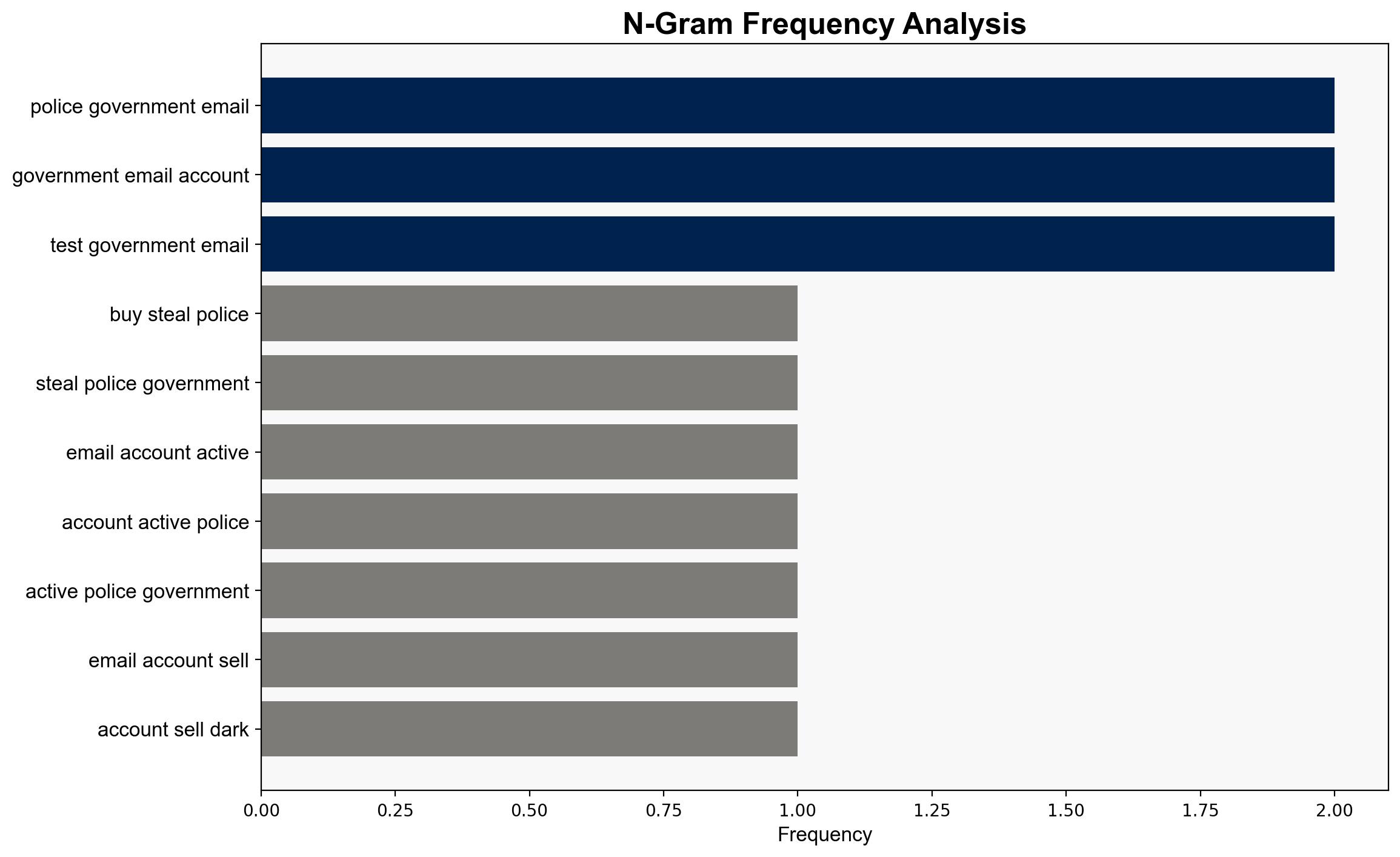For 40 you can buy stolen police and government email accounts – Help Net Security
Published on: 2025-08-14
Intelligence Report: For 40 you can buy stolen police and government email accounts – Help Net Security
1. BLUF (Bottom Line Up Front)
The sale of stolen police and government email accounts on the dark web poses a significant national security threat. The most supported hypothesis is that this activity is primarily driven by financially motivated cybercriminals exploiting weak security practices. Confidence Level: High. Recommended action includes enhancing cybersecurity measures, particularly focusing on password management and multi-factor authentication (MFA) implementation.
2. Competing Hypotheses
1. **Financially Motivated Cybercrime**: The primary motive behind selling these accounts is financial gain, with cybercriminals exploiting weak password practices and credential stuffing to access and sell these accounts.
2. **State-Sponsored Espionage**: The activity is part of a broader state-sponsored espionage campaign aimed at gaining unauthorized access to sensitive government information and disrupting operations.
Using ACH 2.0, the financially motivated cybercrime hypothesis is better supported due to the low cost of accounts, the use of cryptocurrency for transactions, and the focus on credential reuse and phishing, which are common in financially driven cybercrime. The state-sponsored espionage hypothesis lacks direct evidence of state involvement or strategic targeting patterns.
3. Key Assumptions and Red Flags
– **Assumptions**: It is assumed that the accounts are primarily accessed through credential stuffing and phishing, relying on weak password practices.
– **Red Flags**: Lack of evidence of state involvement could be a blind spot if state actors are using proxies. The report assumes the accounts are being used as advertised, without verification.
– **Inconsistencies**: The report does not specify the volume of accounts sold or the exact nature of the data accessed.
4. Implications and Strategic Risks
The sale of these accounts could lead to unauthorized access to sensitive data, fraudulent legal requests, and potential disruption of government operations. This poses a risk to national security, public trust, and could escalate into broader cyber threats if exploited by organized crime or hostile states. Economically, it could increase costs for cybersecurity and damage reputations.
5. Recommendations and Outlook
- Implement robust password policies and enforce MFA across all government and police email systems.
- Conduct regular security audits and penetration testing to identify and mitigate vulnerabilities.
- Increase awareness and training for government employees on phishing and cybersecurity best practices.
- Scenario Projections:
- Best Case: Enhanced security measures significantly reduce account compromises.
- Worst Case: Continued exploitation leads to a major breach of sensitive government data.
- Most Likely: Incremental improvements in security reduce but do not eliminate the threat.
6. Key Individuals and Entities
No specific individuals are mentioned in the source text. Entities involved include police and government agencies in the United States, United Kingdom, Germany, India, and Brazil.
7. Thematic Tags
national security threats, cybersecurity, counter-terrorism, regional focus





